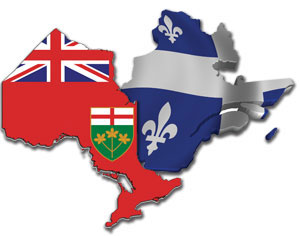The Law Society of Upper Canada has become the first legal regulator to ratify the 2013 national mobility agreement that will allow lawyers “full and permanent” mobility between common and civil law jurisdictions.

The mood was jubilant at Convocation on Feb. 28 after benchers unanimously voted to adopt the agreement that gives Ontario lawyers broader access to practising law in Quebec.
Currently, the difference between common and civil law means limited practice opportunities for Ontario lawyers who want to do work in Quebec.
The existing provisions under the Quebec mobility agreement allow lawyers from common law provinces to practise in areas “only with respect to matters under federal jurisdiction.”
The 2007 agreement also permits them to provide legal advice involving matters from their own province, the Criminal Code or public international law.
The new arrangement will replace those conditions and allow Ontario lawyers to practise in any province, including Quebec, in any area of law they’re competent in.
LSUC Treasurer Thomas Conway says the unanimous ratification of the new agreement was “the proudest moment” during his time in his current role at Convocation.
Conway is touting the 2013 document the “last piece of the national mobility agreement.”
“I think there is a recognition by all of us that although there are and continue to be differences between the civil law system in Quebec and the common law system in the rest of Canada, our legal history has shown that more and more of those differences are less significant than they once were,” he says. “There is a lot more in common that the two systems have as they evolve in this country.”
Conway emphasizes, however, that all transferring lawyers have an ethical obligation to not practise in areas they’re not competent in. The law society has suggested that the Federation of Law Societies of Canada create an information package outlining differences between the common and civil law systems that lawyers need to be aware of.
Before the agreement comes into effect, the Barreau du Québec must ratify it. It will vote on the agreement this month.
Barreau president Nicolas Plourde was a guest of honour at Convocation last month. He congratulated benchers on their decision in favour of the agreement and called the difference between common and civil law jurisdictions “more apparent than real.”
By ratifying the agreement, the law society “has sent a strong message that the train of full and total mobility has left the station and that it will not stop until all Canadian law societies have embarked upon the journey,” said Plourde.
“We need, more than ever, to work together to find common solutions and foster our regulatory standards. This is crucial if we wish to further earn and maintain public trust and also be ready to meet the challenges that we face ahead with globalization.”
Under the current system, a Quebec lawyer who wants to become a full member of a law society in another province must write several exams. Lawyers from the rest of Canada seeking to become members of the barreau must also write two law exams.
“These barriers, I am told, were introduced several years ago based on what was thought to be gaps between civil and common law. I am not saying that these gaps do not still exist but I believe that they no longer justify these barriers,” said Plourde.
He added: “The benefits resulting from the Barreau du Québec’s willingness to recognize the legal credentials of lawyers admitted to practice in common law provinces and territories, even without any specific civil law training, outweigh the risks.”
Conway tells
Law Times Plourde approached him last year about what Ontario’s position would be if Quebec decided to opt fully into the mobility agreement.
“I said, ‘Well, I think that would be a very positive move and it would be the last big piece of the national mobility regime,’” says Conway. “That’s how we started the ball rolling.”
Plourde said the new agreement means lawyers can follow their clients wherever they go in Canada. He also said the influx of francophone lawyers to Ontario and English-speaking lawyers to Quebec will ensure clients who speak only one of Canada’s official languages receive better service in both provinces.
More and more law schools in Quebec are also training students on the civil as well as the common law systems, said Plourde.
Bencher Vern Krishna recalled the uncertainty and fear that followed the first consideration of a mobility agreement a decade ago.
“The alarm signals and the bells that went off — the legal profession was about to collapse,” he said in recalling the talk at the time. “We were going to do something so radical that it was going to . . . alter the nature of the profession and expose the public to grave danger.
“It just tells us that sometimes you have to bite the bullet and make radical solutions and only time will teach you very quickly how what was radical a decade ago is now considered completely passé.”

